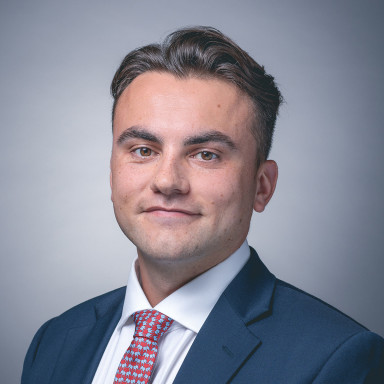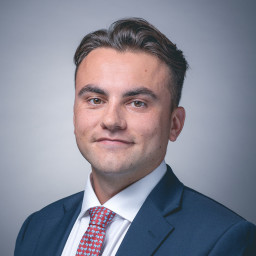- Jacob de Tusch-Lec is a contrarian investor and has managed the fund since launch in July 2010
- The fund is separated into three buckets, each with their own unique income traits
- Performance has struggled in recent years but over the past 12 months returns have been strong
- The fund is on our Wealth Shortlist of funds chosen by our analysts for their long-term performance potential
How it fits in a portfolio
Artemis Global Income aims to deliver income and growth by investing in companies from around the world. Income is generated through a variety of sources, from the more mature steady companies to lower quality, higher yielding companies. A focus on companies perceived to be undervalued is the overriding style which means the fund could work well alongside more growth focused funds or add diversification to a UK centric income portfolio.
We believe this fund offers something a little different to other global income funds. de Tusch-Lec’s stayed true to his philosophy during tougher periods but he will also be flexible and tweak and adapt how he invests depending on market conditions. However, whilst the fund has tended to provide a higher level of income, it has also been more volatile than peers in the IA Global Equity Income sector.
Manager
Jacob de Tusch-Lec has managed the fund since launch in July 2010. After joining Artemis in 2005, he spent several years managing UK equities prior to his transition into the global universe. He started his career at BankInvest before moving to Merrill Lynch where he served as vice-president on a pan-European equity strategy.
He’s supported by co-manager James Davidson, who joined in 2018 from JP Morgan and has experience managing both global and US focused portfolios. Davidson has over two decades of investment experience and previously worked with de Tusch-Lec during his time at Merrill Lynch.
Both managers also run the equity portion of the Artemis Monthly Distribution fund but given the overlap in style and approach, we believe they can manage this workload comfortably. We like the challenge and support gained by working as a duo and we think their interaction with other teams enhances their analysis.
Process
The managers conduct detailed company analysis to identify those with a healthy amount of cash to either pay out dividends or buy back shares. As a natural contrarian, de Tusch-Lec is not afraid to invest in out-of-favour companies with recovery potential alongside higher-risk smaller companies and emerging markets.
The fund is divided into three buckets. ‘Core income’ forms the bedrock and has historically accounted for around 40% of the fund. These companies tend to be more mature, less sensitive to the wider economy and can provide a high and steady dividend yield. ‘Dividend growth’ is the second bucket and focuses on companies with the ability to provide an attractive and growing dividend but are likely to be more exposed to the health of the broader economy (more cyclical). Finally, ‘risk and special situations’ is the smallest of the three buckets. It’s home to higher risk, lower quality companies which have the potential to pay a much higher dividend.
In addition to their company-specific research, the managers also take a view on the direction of the global economy. This considers factors like the economic cycle, interest rates and the yield curve. The outcome influences the weightings of each bucket.
The fund invests in around 70 companies. The amount invested in the US has grown since the fund launched, and now accounts for just over half of the fund. That said, this is still lower than the broader global stock market. The managers also find plenty of opportunities within Europe. Although they don’t currently feature in the fund, the manager has the flexibility to invest in high-yield bonds and derivatives to help manage the portfolio, both of which are higher risk strategies.
de Tusch-Lec believes the global economy is slowing so the managers have been reducing exposure to some cyclical companies which has seen US automaker General Motors exit the fund. In contrast, with economies re-opening around the world leading to rising oil demand, the managers increased their energy exposure through the addition of Exxon Mobil. They’ve also added to companies that could do well if we encounter more inflation, such as German real estate company Vonovia.
Culture
de Tusch-Lec is a partner at Artemis, and Artemis is a private company. We think this structure is a good thing for investors, as both manager and firm are focused on the long term and can run funds without distractions from short-term shareholder demands. Artemis also provides an attractive environment for fund managers, allowing them the freedom to run money how they best see fit without imposing a ‘house view’ on them. It’s also a collegiate atmosphere, with managers supporting and challenging each other.
The managers are gradually taking ESG (Environmental, Social and Governance) issues into account more when analysing companies. Along with the wider team, they engage with companies on sustainability issues and vote on key issues. That said, they will sometimes still invest in companies that are not traditionally seen as scoring highly on ESG matters, as many of these tend to pay higher dividends to shareholders.
Cost
The fund is normally available for an annual ongoing charge of 0.87%. We negotiated a 0.27% saving though, so it’s available on the HL platform for 0.60%. The fund discount is achieved through a loyalty bonus, which could be subject to tax if held outside of an ISA or SIPP. This lower charge is one of the lowest among IA Global Equity Income sector funds. The HL annual platform charge of up to 0.45% also applies.
Performance
Since the fund launched in July 2010, de Tusch-Lec has outperformed peers in the IA Global Equity Income sector. Over this period the fund returned 247.49%* vs 195.14% for the peer group. There are no guarantees this will continue though, and there have been periods where the fund’s performance has varied significantly from its peers and the broader global stock market. This was the case between 2018 and 2020 when the managers’ investment style and their stock picking weighed on returns.
We would typically expect the fund to underperform sector peers during falling markets and outperform in rising ones. This has been the case over the past 12 months with the fund returning 36.77% vs 28.39% for the peer group. The managers have found success within sectors such as financials and basic materials.
The Blackstone Group was one of the top performers, having doubled its dividend for 2021. The private equity company has benefited from strong investment performance and rising inflows. Simon Property, the US mall operator, was another strong performer. The company acquired several businesses during the pandemic shutdown, including one if its competitors, which meant it emerged from the pandemic a stronger business. Other notable performers included General Motors and European Telecommunications company, Zegona Communications. With the exception of Simon Property, the rest of these companies have since been sold.
The fund currently yields 2.35%, though yields are not a reliable indicator of future income and income isn’t guaranteed. The fund’s charges are taken from capital, which can increase income but reduce the potential for capital growth over time. The fund and any income the fund produces can fall as well as rise in value so investors could get back less than they invest.
| Annual percentage growth | |||||
|---|---|---|---|---|---|
| Oct 16 -
Oct 17 |
Oct 17 -
Oct 18 |
Oct 18 -
Oct 19 |
Oct 19 -
Oct 20 |
Oct 20 -
Oct 21 |
|
| Artemis Global Income | 11.18% | -1.89% | 1.78% | -9.65% | 36.77% |
| IA Global Equity Income | 10.10% | -0.02% | 10.28% | -5.01% | 28.39% |
Past performance is not a guide to the future. Source: *Lipper IM to 31/10/2021. Figures shown include the income which is reinvested.
Find out more about Artemis Global Income including charges
Artemis Global Income Key investor information
Want our latest research sent direct to your inbox?
Our expert research team provide regular updates on a wide range of funds.

